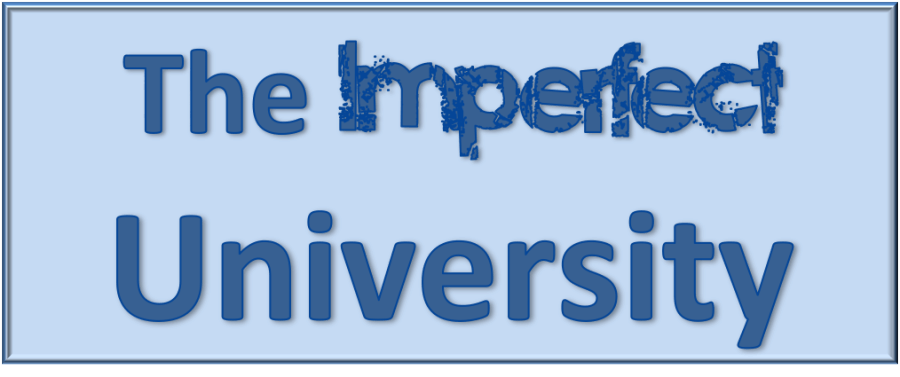Because universities are difficult, but worth it
With the latest post, on why administrators really do matter in universities, we are now up to a total of 11 pieces to date in the Imperfect University series. Covering leadership, staff mobility, regulation, governance in Scotland and Virginia, not so revolutionary online provision, the cult of efficiency and more regulation I hope there is something for everyone in here. Anyway, do let me know what you think – here are all of the posts for reference:
An introduction to the series
What kind of people do universities need as leaders – is appointing a top academic enough?
Despite the rhetoric we always seem to end up with additional rather than reduced regulation in higher education.
Reviewing higher education in Scotland
Comments on a recent review of university governance in Scotland.
Do we need a level playing field?
Some discussion on this frequently used argument.
Massive Open Online Confusion?
 On why Massive Open Online Courses aren’t perhaps as revolutionary as is claimed by some.
On why Massive Open Online Courses aren’t perhaps as revolutionary as is claimed by some.
Governance Challenges at the University of Virginia
On the removal of the President at the University of Virginia. Messy.
A look at a book from 1962, Education and the Cult of Efficiency, which offers a salutary warning about the hazards of imposing inappropriate models in education.
Graduation – a bit London 2012?
A comparison between graduation events and the feel good Olympics. With other observations about graduation.
Developing and moving professional services staff.
Why there really aren’t too many administrators in universities. Honest
More to follow in due course.












Thinking hard about college If there’s a part of the educational system that should be easier to fix, it’s higher education. We’ve seen really significant changes in the physical plant, the marketing, and the structure of many universities, usually in response to student demand. University presidents are responsive to application rates, donations, and football attendance— they understand that their seven-figure salaries are often a reflection of how the world of alumni, parents, and students feel about them. Unlike local high schools, colleges compete. They compete for students, for professors, and for funding. Colleges have an opportunity to dramatically shift what… Read more »